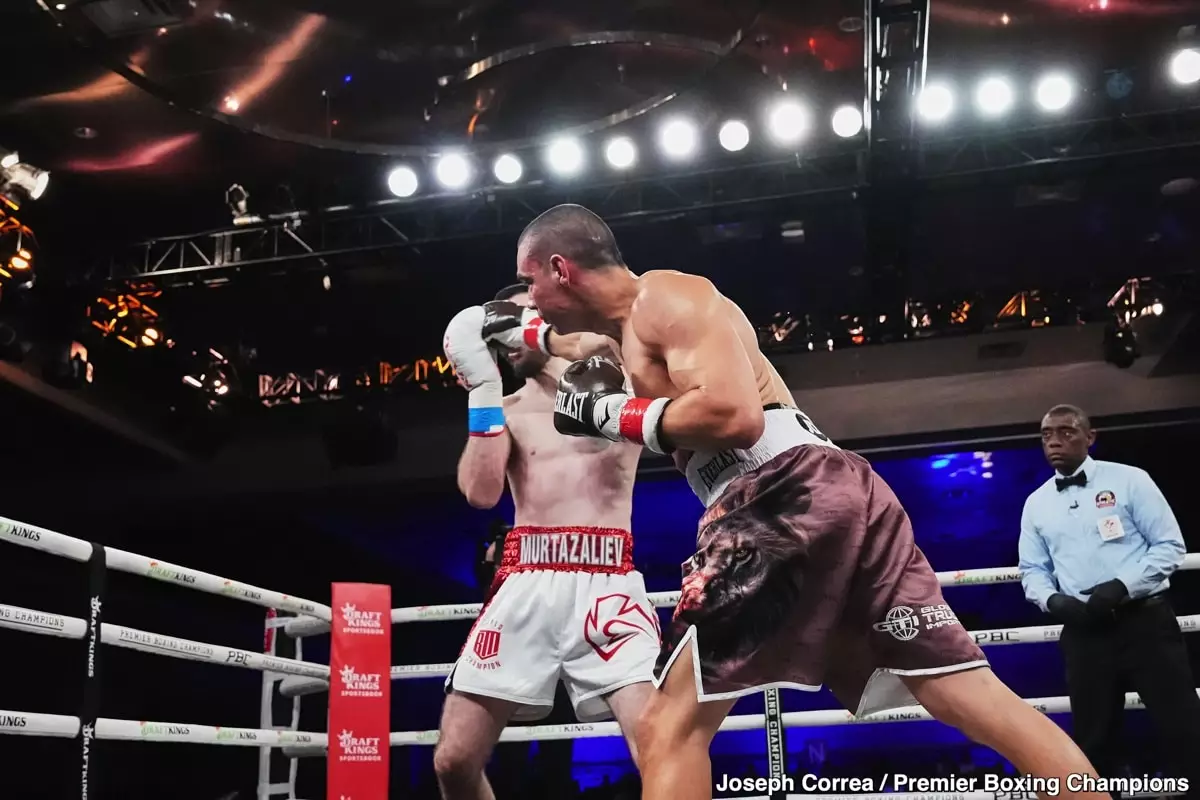Tim Tszyu, once considered a bright prospect in the junior middleweight boxing scene, now finds his career hanging in the balance following a devastating third-round knockout loss to IBF champion Bakhram Murtazaliev. This loss marks the second consecutive defeat for Tszyu, a trend that threatens to derail his aspirations for a title shot and could have longer-lasting ramifications on his career trajectory. As he stands at a crossroads, the question arises: how can Tszyu regain his footing in such a competitive landscape?
Keith Thurman, a former champion and prominent figure in the boxing community, has weighed in on Tszyu’s current mental and physical state. He characterizes the 29-year-old fighter as “broken and distraught,” underscoring the emotional toll that consecutive defeats can inflict. These sentiments reflect a critical turning point not just for Tszyu, but also for the perception surrounding his capabilities as a fighter. The once-promising Australian now faces significant scrutiny as his career prospects dim.
In light of these setbacks, it seems likely that Tszyu will take a step back to regroup. Thurman suggests that he may return to Australia and engage in several fights designed to rebuild both his confidence and reputation. However, this plan comes with caveats. While Tszyu may find ways to improve his skills domestically, simply fighting lesser opponents—often euphemistically referred to as “tomato cans”—will not be enough for his evolution as a fighter.
To truly enhance his standing in the boxing world, Tszyu will need to confront quality opponents who can push him to adapt and refine his skills. Competing against subpar fighters would be a hollow victory, and Thurman’s advice to “work on his defense and have a little more output” underscores a vital area that Tszyu must improve if he wishes to regain his place among the elites. As a fighter nearing 30, there are concerns about whether he can make significant changes to his style, having largely relied on the same approach throughout his career.
Tszyu’s journey back to contention will not be easy, especially considering the competitive nature of the junior middleweight division. Success will hinge on his ability to absorb lessons from his recent defeats and incorporate them into a revamped fighting strategy. The risk of stagnation is palpable, particularly if his camp opts for a series of less challenging bouts instead of strategic fights that could facilitate his growth.
Thurman highlights that the best fighters are likely to avoid challenging Murtazaliev, seeing him as a formidable opponent whose skill set is increasingly underrated. This creates a bottleneck in the title chase for fighters like Tszyu—if there is a reluctance among champions to engage with rising threats, aspiring contenders will inevitably struggle to find opportunities.
Murtazaliev’s career now appears poised for potential unification bouts, a path that Tszyu would find valuable only if he can navigate the interim challenges laid out in front of him. The implications of facing Murtazaliev could serve as a beacon for Tszyu’s own resurgence should he be able to secure the necessary victories.
The loss to Murtazaliev could be viewed as a pivotal moment in Tim Tszyu’s career, one that necessitates a thorough reassessment of his approach and tactics. With the boxing community now questioning his ability to excel under pressure, Tszyu has no choice but to rise to the occasion. This will involve no easy fixes or quick returns to glory but instead an arduous journey marked by purposeful training, strategic fights, and perhaps a reinvention of his boxing style.
The future remains uncertain, but one undeniable fact is that the time for Tszyu to react is now—he must seize this opportunity to redefine himself before his career slips further away. Only time will tell if he can craft a path back to greatness, and much depends on his willingness to confront the daunting challenges ahead.

